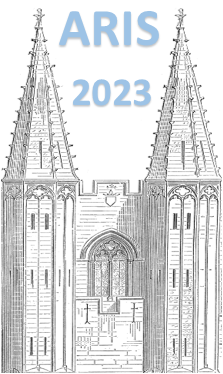Orateur
Description
Potassium-40 (40K) is a naturally-occurring radioactive isotope. It is a background in searches for exotic subatomic particles, plays a role in geochronology, and has a nuclear structure of interest to theorists. This radionuclide decays mainly by beta emission to calcium, and by electron-capture to an excited state of argon. The electron-capture decay of 40K directly to the ground state of argon has never been measured, and predicted intensities are highly variable (0–0.22%). This poorly understood intensity may impact the interpretation of a controversial claim of dark matter discovery [1]. The KDK (potassium decay) experiment has carried out the first measurement of this electron-capture branch, using a novel setup at Oak Ridge National Labs [2]. KDK deployed a very sensitive inner detector to trigger on the ~keV radiation emitted by both forms of electron capture, surrounded by a very efficient veto to distinguish between the decays to ground state and those to the excited state. We present result of the experiment [3] and implications for various fields.
[1] Pradler et al, Physics Letters B 720 (2013) 399–404, http://dx.doi.org/10.1016/j.physletb.2013.02.033
[2] Stukel et al, Nuclear Inst. and Methods in Physics Research, A 1012 (2021) 165593, https://doi.org/10.1016/j.nima.2021.165593
[3] Stukel et al, https://doi.org/10.48550/arXiv.2211.10319

